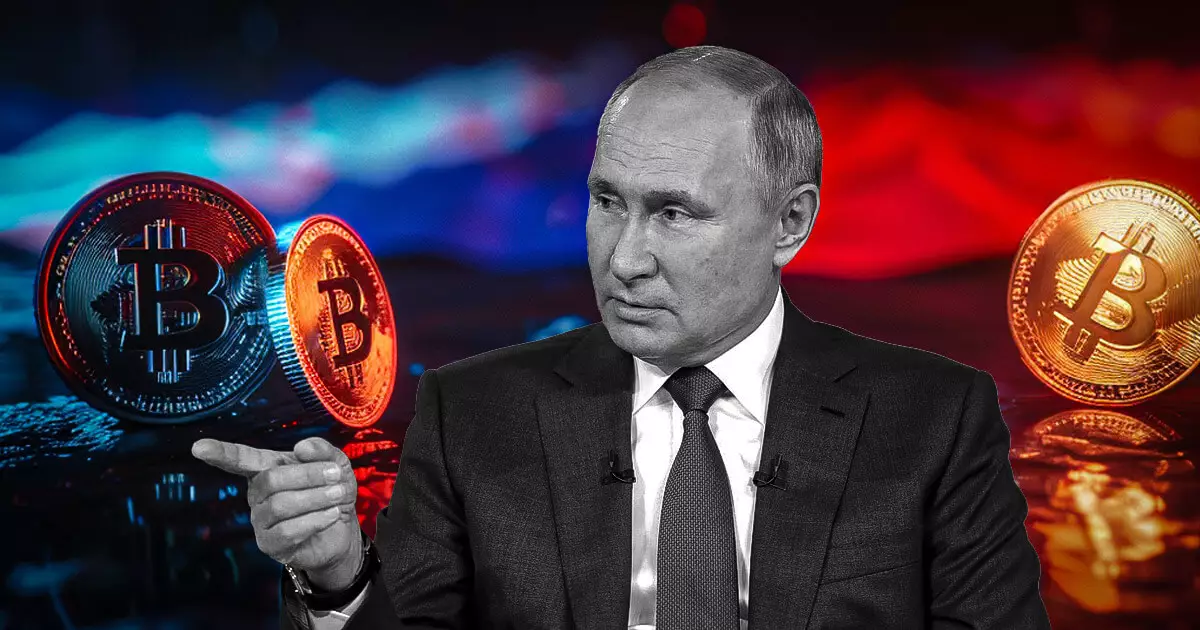In a significant declaration made at the Investment Forum in Moscow, Russian President Vladimir Putin highlighted the inevitability and importance of Bitcoin (BTC) and other digital currencies in the global economy. He positioned these cryptocurrencies as vital instruments to mitigate financial inefficiencies and bolster economic stability. This perspective aligns with a growing sentiment among several nations that seek alternatives to traditional financial systems dominated by the US dollar. By advocating for Bitcoin as a potential global reserve asset, Putin not only underscores its practical utility but also challenges the long-standing dominance of the US dollar.
Putin’s critique of U.S. monetary policy is a central theme of his remarks. He pointed to the substantial $300 billion in Russian reserves that were frozen by Western nations following the onset of the Ukraine conflict. This event exemplified how currency dominance can also translate into geopolitical leverage, setting a precedent that many nations are keen to avoid. The fallout from these actions has propelled countries, including Russia, to explore and adopt cryptocurrencies, which operate outside the conventional financial control structures heavily influenced by the U.S. government.
The Russian President was adamant: “Who can ban Bitcoin? Nobody.” His assertion speaks to the decentralized nature of cryptocurrencies that makes them resistant to prohibition and interference. The technological evolution surrounding digital currencies signifies a broader movement toward reducing transaction costs and increasing reliability in payment systems. These advancements are particularly appealing to those seeking financial independence from traditional banking systems.
Putin’s remarks come on the heels of Russia implementing new legislation that officially recognizes cryptocurrencies as property. This law not only provides significant tax relief for digital transactions but also exempts crypto mining and transactions from value-added tax (VAT). Such legal recognition showcases Russia’s commitment to an innovative financial landscape, reflecting a strategic maneuver to cushion against external financial pressures and to harness the potential of digital assets.
The ongoing Ukraine conflict has highlighted the significance of cryptocurrency as a viable escape route from stringent Western sanctions. Both Russian and Ukrainian individuals have utilized digital currencies to facilitate monetary transfers, creating a lifeline amid economic upheaval. This dynamic has positioned cryptocurrencies as a fundamental component of economic resistance, illuminating their importance in modern conflict scenarios.
Recent dialogues at the BRICS summit reinforced the potential of digital currencies in reshaping international financial dynamics. These discussions emphasize not just the convenience of cross-border transactions but also a collective aspiration among emerging economies to challenge the imperialistic tendencies inherent in traditional financing models.
In an era where financial systems are under scrutiny, Putin’s endorsement of Bitcoin reflects a vision beyond national borders—a future where technological advancement propels economies toward stability and self-sufficiency. His calls for adopting digital assets resonate with a broader trend of modernization in the global financial ecosystem, pushing the narrative that the future is digital and decentralized.

